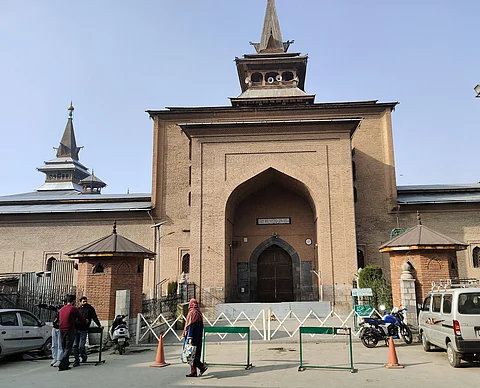

For decades, Jammu and Kashmir has endured the painful shadows of militancy and violence, leaving deep scars on its people.
During the peak of insurgency, a troubling silence often prevailed among the masses when terrorists committed horrific massacres, targeting communities on communal lines—be it the Sarthal killings, Barshalla and Chapnari massacre, or the Kulhand, Reasi, Neel Ramban and Chitisinghpora carnages.
This silence, though complex in nature, was often misread as consent or complicity. In truth, it stemmed from misleading political teachings, propaganda, fear, helplessness, and a lack of courage to stand up to the gun-wielding men who ruled the streets. In some of the cases, it even appeared as if the killers had the consent of the people to murder innocent citizens on communal lines for sake of Azadi.
The result of this silence was devastating. It created a perception among security agencies and parts of the rest of the country that Kashmiris—especially Muslims—harboured sympathy for militancy. Consequently, the state responded by treating the entire population with suspicion, often blurring the lines between ordinary citizens and supporters of militants. This misjudgement further deepened the wedge between the government and the people.
However, recent events point towards a significant shift in the public psyche. The killing of innocent tourists in Pahalgam was a major turning point that showcased this transformation. For the first time in decades, common people—cutting across age and class—stood openly against the terrorists.
Faces once clouded with fear now bore visible signs of anger and disgust. Loud and clear, the people condemned the violence, expressed solidarity with the victims, and sided with the state. Prominent leaders, including Mirwaiz Umar Farooq, have openly condemned the violence, emphasizing solidarity with the victims and denouncing terrorism.
It was not just a protest against terrorism; it was a declaration of peace, a reclaiming of the Kashmiri identity beyond the shadow of the gun.
Though there should have been a quick response by the government which ought to have embraced Kashmiris as they stood on the side of government, the complete reverse happened. Instead of grabbing the opportunity of reaching out to the Kashmiris to minimise years of alienation, which still prevails to a large extent in the Kashmir Valley, reports emerged of Kashmiri students being attacked in various states of India.
"While Kashmiris came out openly against the killings, elsewhere in India, extremist elements backed by the RSS and BJP began targeting innocent Kashmiri students. How can we believe that going against militants means the government will stand with us?" said a young political activist from Doda.
Most observers of political developments in Kashmir believe the government at the Centre must adopt a more humane and inclusive approach. But as of now, no such signs are visible.
News reports state that after the Pahalgam attack, about 2800 young men have been taken into custody and some booked under the Public Safety Act (PSA), often on vague suspicions. Thousands of youth continue to languish in jails for stone-pelting and other minor offenses, with no visible process for their release, says Advocate Hashmi.
As someone who has reported on militancy from its inception, I can say with conviction that this change in public mood is both rare and historic. It presents a crucial opportunity—one that must not be squandered.
The ball is now in the government's court. To sustain and nurture this transformation, the state must act with patience, wisdom, and a sense of belonging. Kashmir must no longer be treated as a land of suspicion, but as a dignified state administered by the Indian Union—deserving of trust, respect, and development like any other state.
What is happening on the political front is even more disheartening. After years of political uncertainty, a government was finally formed—but it has proved to be largely ineffective.
In a place that has been the epicenter of conflict for over three decades, Kashmir needs a strong civil government capable of taking bold decisions. Instead, it is common to hear people say that they now have a government that “cannot even transfer a coolie.” Such sentiments reflect the widespread disappointment and lack of confidence in local governance structures.
Importantly, the government must accept open-heartedly that the people of Kashmir—especially its Muslims—are its own people. This acknowledgment must reflect not just in words but in action. Security strategies must distinguish between enemies of the nation and its citizens. The focus should now shift to building trust, empowering youth, strengthening institutions, and healing wounds.
Kashmir stands at the crossroads of change. Let the government walk with its people—not ahead of them, not behind them, but beside them. The era of alienation must end, and a new chapter of reconciliation and unity must begin.
Have you liked the news article?